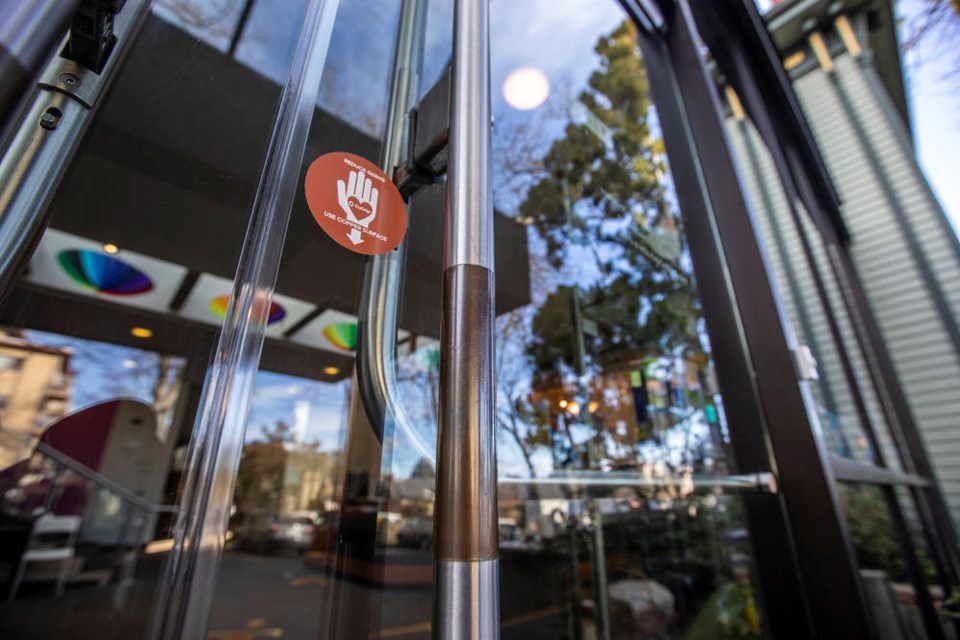A small Victoria company is hoping to see its products in the hands of millions of people around the world within the next few months.
CuGrip, which will celebrate its first anniversary around the same time the COVID-19 pandemic turns one, has created copper wraps — a thin copper sheet with an adhesive — that can be used to ensure sanitary high-touch surfaces on mass transit and in hospitals, airports and other public spaces.
“Where there are people, there could be CuGrip,” said Larry Cole, president of the company, the brainchild of Victoria inventor Victor Nicolov. “The market is massive for this. It’s staggeringly big.”
Cole, who stepped in to partner with Nicolov last year, said the results of a recent independent test of copper’s efficacy in killing bacteria should open doors for CuGrip around the world.
TransLink, which operates Vancouver’s transit system, recently tested copper products on its high-touch surfaces and determined the metal was lethal to bacteria.
Among the products tested was CuGrip, which Cole said “knocked it out of the park” in terms of its effectiveness.
The first phase of the study, funded by mining giant Teck Resources, showed copper products kill up to 99.9 per cent of all bacteria within one hour of surface contact. A second phase to verify results will begin in coming months.
Cole said the company now has the proof it needs to make deals with transit authorities around the world. He said it’s already in talks with New York, along with cities in California, Britain, Europe and Asia.
Cole said transit alone is a potential $1-billion market for the product, which can also be used in hospitals, schools, long-term care facilities, airports and any other high-traffic public building or amenity — wherever there’s a door handle.
Nicolov said CuGrip owes its existence to the pandemic and research he came across showing the efficacy of copper in reducing bacteria in hospitals.
Tests of copper hardware in hospitals showed a significant reduction in hospital-acquired infections, but the copper tools were too expensive to replace when they started to wear out.
As a fix, Nicolov created a thin copper strip that could cover a surface of a handle, tabletop or any other high-touch surface and could be easily and inexpensively replaced.
“We were trying to offer a low-cost, self-sanitizing surface,” he said. “We made it simple — they are basically stickers that have the same effect as copper.”
Nicolov said the adhesive wraps are 99.9 per cent copper. “They stick to the surface and when they get old or damaged they can be peeled off and replaced.”
The company has made custom-sized strips for some customers, but its standard sizes can cover most door handles, grocery-cart handles and the poles used in buses and subways for balance.
They can also be adapted for golf courses — rake handles in sand traps and the flagsticks on the greens — or anywhere there is a lot of public traffic and use.
CuGrip has already established a manufacturing base in Ohio that is capable of producing 100 million products a month. It has distribution networks around the world and dealers in several countries.
Cole said the demand will not die when the pandemic subsides, as colds and flu, which were drastically reduced amid pandemic precautions, will continue to be a concern.
“It’s really a behaviour-modification tool,” he said, noting the high-visibility copper wraps are targets for hands, an indicator of where people have touched and a destination for cleaning staff.
aduffy@timescolonist.com



